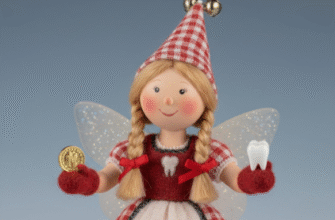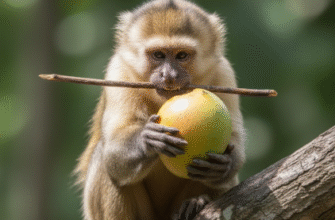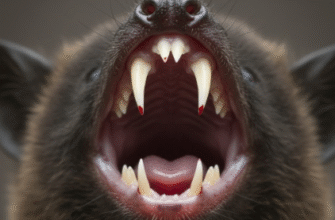The simple act of puckering lips and blowing, producing a cheerful whistle, is for many a casual expression of joy or a way to pass the time. Yet, this seemingly innocuous sound carries a surprising weight of prohibition in numerous cultures around the globe. What one person considers a harmless tune, another might view as an invitation for misfortune, a sign of disrespect, or even a call to unseen forces. These cultural taboos against whistling, often deeply ingrained and passed down through generations, reveal fascinating insights into human belief systems and our relationship with the audible world. The way the mouth and teeth are used, or perceived to be used, in creating this sound can also play a subtle role in these ancient warnings.
At the heart of many whistling taboos lies a common thread: the belief that whistling can pierce the veil between worlds, attracting or agitating spirits. Whether these are malevolent entities, mischievous sprites, or ancestral ghosts, the sound of a whistle is often thought to act as a beacon. This is particularly true for whistling at night, a time traditionally associated with heightened spiritual activity and vulnerability. The darkness, already a canvas for a fertile imagination, becomes more perilous when punctuated by a sound believed to traverse realms. The sharp, penetrating nature of a whistle, distinct from spoken words, might be perceived as a more direct, almost primal form of communication with the supernatural.
Beyond summoning spirits, whistling is frequently linked to courting more tangible forms of bad luck. In maritime cultures, for instance, whistling at sea is a notorious taboo, believed to “whistle up a storm” or anger the wind gods, endangering the vessel and its crew. Similarly, in some agricultural communities, whistling during certain times might be thought to bring drought or attract pests. The underlying logic often seems to be that whistling challenges or mocks the forces of nature, which then retaliate. It’s a form of impertinence, a casual human sound daring to influence or command powerful, uncontrollable elements. This notion of whistling as a disruptive force extends to more personal misfortunes too, such as financial ruin or ill health.
Whispers Across Continents: A Global Glance at Whistling Bans
The fascinating tapestry of whistling prohibitions is woven across diverse geographical and cultural landscapes. Each region adds its own unique threads to this ancient custom, reflecting local mythologies and anxieties. These are not merely quaint superstitions; for many, they remain active considerations in daily life, shaping behavior in subtle yet persistent ways.
European Echoes
In Russia and several other Slavic countries, a particularly prevalent belief warns against whistling indoors. Doing so, tradition dictates, will blow your money away, inviting poverty into the household. The home, a sanctuary of stability and prosperity, is thus considered a place where such potentially disruptive sounds should be avoided. This idea extends to the notion that whistling can scare away house spirits, or Domovoy, benevolent guardians of the home, leaving the household vulnerable. Scandinavian seafaring lore, as mentioned, is rich with warnings against whistling on ships, a practice thought to summon fierce winds and treacherous seas. The sound, perhaps mimicking the howl of the wind, was considered a direct challenge to the unpredictable maritime environment.
Asian Apprehensions
Moving to East Asia, the night again becomes a critical factor. In Japan and Korea, whistling after dark is strongly discouraged because it is believed to attract snakes or summon ghosts and evil spirits. The sibilant quality of a whistle might be thought to resemble the hiss of a serpent, or its ethereal nature might be seen as a call to otherworldly beings that roam in the darkness. These beliefs are often shared with children from a young age, embedding a cautious respect for the unseen world that awakens when the sun sets. The specific connection to snakes is particularly interesting, perhaps linking to older animistic beliefs where certain animals were seen as messengers or manifestations of spirits.
Caribbean Chills and Indigenous Wisdom
Across the Atlantic, in many parts of the Caribbean, whistling at night is a surefire way to attract “jumbies,” “duppies,” or other local spirits, often malevolent or mischievous. These entities are thought to be drawn to the sound, and an ill-timed whistle could lead to an unwelcome encounter or a period of bad luck. Similarly, many Indigenous cultures across the Americas hold specific beliefs about whistling. While varying greatly from tribe to tribe, some view whistling as a way to communicate with spirits of nature, but only to be done by certain individuals or at specific times, lest it be disrespectful or disruptive to the natural and spiritual order. Unwarranted whistling could be seen as frivolous and potentially offensive to these powerful forces.
The Mouth as a Mystical Gateway
The very mechanics of whistling – the shaping of the lips, the controlled expulsion of air, sometimes involving the teeth or tongue to achieve certain pitches or styles like finger-whistling – intrinsically tie these taboos to beliefs surrounding the mouth. The mouth is almost universally regarded as a potent portal: it ingests life-sustaining food, utters powerful words (prayers, curses, truths, lies), and expels breath, which itself is often equated with life force or spirit. If words have power, then perhaps a wordless, yet expressive sound like a whistle, emanating from this same powerful orifice, is perceived to carry a unique, untamed energy. The directness of the sound, often unmediated by complex language, might be seen as a more raw form of vocal expression, capable of reaching entities or forces that spoken language cannot.
Anthropological studies consistently highlight the mouth’s symbolic significance across cultures as an orifice of passage. It’s not just for sustenance but for communication with both the mundane and the sacred. Therefore, sounds like whistling, produced by intricate movements of the mouth, lips, and sometimes teeth, can be imbued with special power or danger, capable of influencing the unseen world.
The teeth themselves, while not always explicitly central to every whistling taboo, play a role in shaping the oral cavity and, for some whistling techniques, are directly involved. Beliefs about teeth often relate to strength, vitality, and even aggression. The act of baring teeth, even subtly within the mouth during whistling, could unconsciously tie into deeper symbolic meanings. While many of these ancient warnings against whistling might seem like relics of a bygone era to some, particularly in urbanized, secular societies, they haven’t entirely vanished. They often persist as cultural quirks, half-believed superstitions, or cautionary tales told to children. These enduring echoes remind us that the mundane sounds we make can carry profound cultural weight, shaped by centuries of belief about our place in the world and the forces that lie just beyond our everyday perception. The next time you pucker your lips to whistle a tune, it might be worth a fleeting thought to the silent warnings that still resonate in corners of our world.








